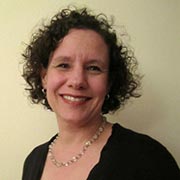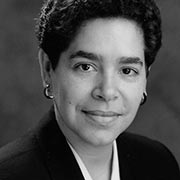 Never before have so many organizations come together to improve philanthropy’s work on diversity, equity, and inclusion. If you think you are working to make this sector a more diverse place, then you are—and we want to work with you.
Never before have so many organizations come together to improve philanthropy’s work on diversity, equity, and inclusion. If you think you are working to make this sector a more diverse place, then you are—and we want to work with you.
Whether you represent a foundation, philanthropy organization or individual practitioner, here are some ways you can get involved:
Learn. Explore our tools and resources to find ways to address diversity policies and practices at your organization, and tell us about others.
Connect. Share your good work and connect with other foundations, organizations, and individuals across the country. Tell us your news. Attend a national or local convening in your area related to diversity, equity, and inclusion issues.
Guide. Help shape the coalition by serving on a working group. Working groups are focused on these priorities. Send us your ideas.
Champion. Fund the work of D5 and serve as an advisor and spokesperson for the coalition. Contact us with ideas and funding opportunities.
 We are focused on encouraging foundations to take voluntary action to advance diversity, equity, and inclusion.
We are focused on encouraging foundations to take voluntary action to advance diversity, equity, and inclusion.
We don’t take positions on legislation, but we believe philanthropy has been successful in tackling some of the nation’s biggest problems effectively, without outside intervention. And we believe the case for diversity, equity and inclusion is compelling enough as a smart business strategy to motivate philanthropy without the need for legislation to require it.
 Absolutely. Most of our field is made up of smaller foundations. Without you and others like you, we can’t make real progress on these issues.
Absolutely. Most of our field is made up of smaller foundations. Without you and others like you, we can’t make real progress on these issues.
We know D5 won’t work unless we have a big table and extend seats to the broad array of foundations and groups interested in these issues. So we’re planning lots of ways for organizations like yours to get involved.
 It’s not easy, but you’ll need to set your own measure of success.
It’s not easy, but you’ll need to set your own measure of success.
There is no single gold standard. For example, many foundations have set a goal to ensure that staff and boards reflect the demographics of their communities proportionally. Others have created specific population focused funds or initiatives to serve a specific segment of their constituency or to address a disparity affecting a particular community.
However you do it, you should see each accomplishment as a milestone to celebrate.
 Organizational change starts with aligning your staff around your priorities through meaningful conversations—and continues through the implementation of policies and practices that affect hiring, grantmaking and data collection.
Organizational change starts with aligning your staff around your priorities through meaningful conversations—and continues through the implementation of policies and practices that affect hiring, grantmaking and data collection.
Many foundations have successfully made changes in some or all of these areas, and have useful knowledge to share. Contact D5 to connect to other leaders working towards common goals so you can learn from their stories and share some of your own.
 Think about all of the people involved in the issues you focus on—and think about all the aspects of diversity.
Think about all of the people involved in the issues you focus on—and think about all the aspects of diversity.
Are there people in the community you serve that have unique needs? For example, if your mission is to advance the arts in your community, are there people with disabilities who could be better served by your efforts? For instance, is their perspective represented on your board? Are your events accessible?
Even if DEI doesn’t seem seem immediately relevant to your niche, thinking about the specific, diverse needs of your community can help you be more effective and better achieve your mission.